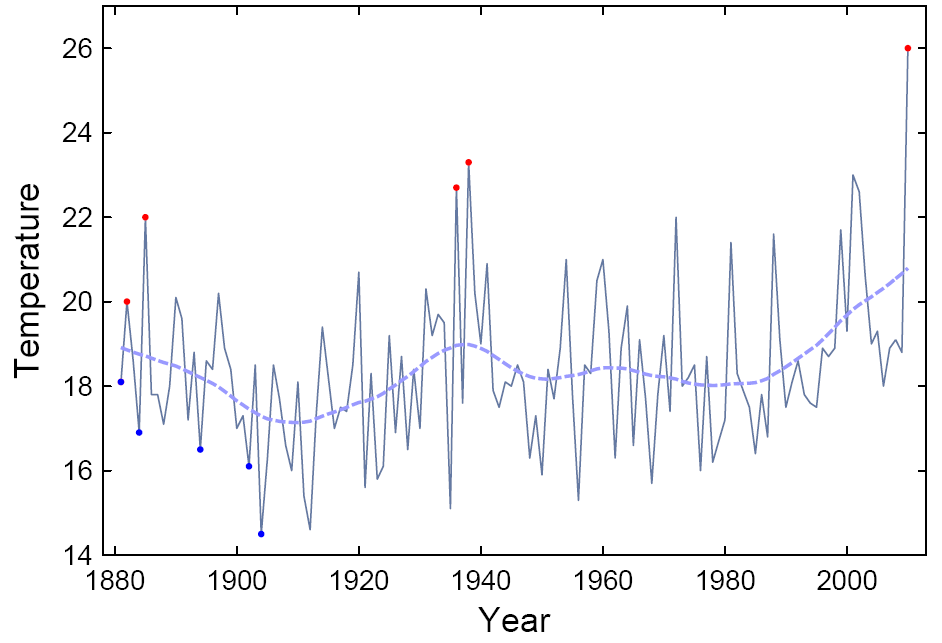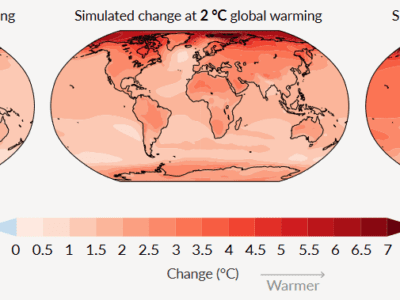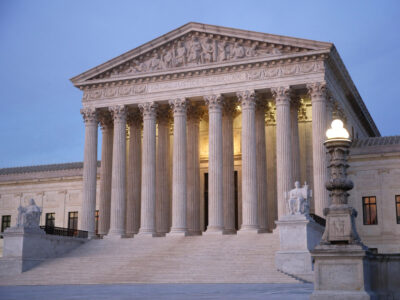When Can We Attribute Extreme Events to Climate Change?

Moscow suffered from a severe heat wave in the summer of 2010, with temperatures reaching 101 degrees and an average temperature 14 degrees higher than normal for July. What are the odds that the heat wave was due to climate change?
RealClimate presents the results of an analysis that was just published in the Proceedings of the National Academy of Science. The analysis indicates that there was an 80% probability that climate change caused the heat wave.
A previous study showed the opposite, so it’s natural to ask the reasons for the difference. There seem to be two basic reasons. First, the earlier study made an erroneous correction for the urban heat island effect, which incorrectly assumed that the effect is equally strong all year around. The newer study used satellite data to correct that error. Second, the earlier study assumed that climate change was linear over the past century, which is unlikely since CO2 concentrations have had a non-linear increase. Not surprisingly, a non-linear trend fits the data better.
You can actually get a sense that something unusual is happening from this simple graph. Blue dots are record colds and red dots are record highs:

There are a couple of things that are suggestive about this graph, besides the overall upward trend. First, there hasn’t been a new record cold temperature in a century, and the coolest months are well above the previous record. Second, the last record-breaking high temperature only broke the previous record by a small amount, but the 2010 broke its predecessor by a much larger amount. These facts suggest — but obviously don’t prove — that there is an underlying shift in temperature over the past century which is affecting the record-breaking events.
The article also makes a more general point about record-breaking events. If natural variability is large relative to trend, we shouldn’t expect to see a lot of record-breaking events because they’ve already had many opportunities to occur in the record. But as the trend grows larger, the number of broken records also increases. So we can expect many more broken records to come as climate change continues to grow relative to background natural variability.







Reader Comments